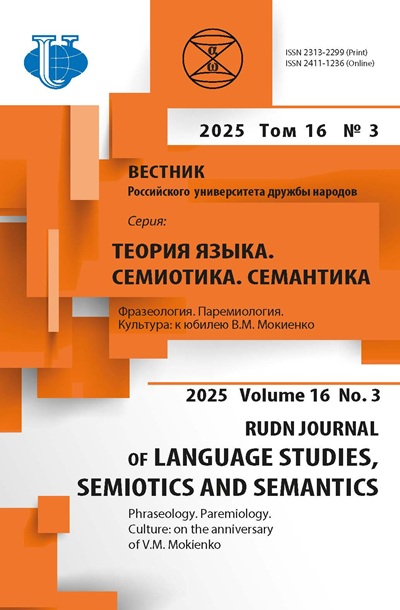Выпуск
Название
Авторы
|
Чулкина Н.Л., Денисенко В.Н. |
|
Ратникова А.Г., Богуславская В.В. |
|
Мирзоева Л.Ю., Жумабекова А.К., Досмаханова Р.А., Ажиев К.О. |
|
Ибрагим В.Ф., Мамонтов А.С. |
|
Доброва Г.Р. |
|
Терещук А.А. |
|
Туманова А.Б. |
|
Пэй Х., Колышева О.Н. |
|
Москвичева С.А., Ли С. |
|
Елисеева М.Б. |
|
Оглезнева Е.А., Пустовалов О.В. |
|
Жанпеисова Н.М., Кузембаева Г.А., Майдангалиева Ж.А. |
|
Паизбекова А.Д. |
|
Андреева М.И., Солнышкина М.И., Сарра С. |
|
Аль-Фоади Р.А., Зарытовская В.Н. |
|
Чернов Д.Н., Морослин П.В., Мамонтов А.С. |
|
Казаченко О.В. |
|
Хухуни Г.Т., Будман Ю.Д. |
|
Уфимцева Н.В. |
|
Бондарева В.В. |
|
Перфильева Н.В. |
|
Сулейменова Э.Д., Аканова Д., Аймагамбетова М.М. |
|
Москвичева С.А., Ли Сюэ -. |
|
Владимирова Т.Е. |
|
Иванова М.В. |
|
Моради Марьям Дарьюш -. |
|
Новиков Ф.Н. |
|
Чеснокова О.С., Джишкариани Л.М. |
|
Жолудева Л.И. |
|
Уфимцева Н.В. |
|
Недопекина Е.М., Ха Ц. |
|
Дербишева З.К. |
|
Нелюбова Н.Ю. |
|
Джиоева А.А., Стрельникова О.Ф. |
|
Жикулина К.П., Перфильева Н.В., Ли М. |
|
Гуревич Д.Л. |
|
Борисова А.А., Ильина Н.Ю. |
|
Монфорте Дюпре Р.В., Чеснокова О.С. |
|
Шапошникова И.В. |
|
Раадранириана Антса Миангола Малала -. |
|
Сунь Ю., Рыбаков М.А., Лысякова М.В. |
|
Джусупов М. |
|
Дугалич Н.М. |
|
Недопекина Е.М. |
|
Вавичкина Т.А., Власова Ю.Е. |
|
Медведева Д.И., Фаттахова А.Ж. |
|
Бахтикиреева У.М., Брагина М.А. |
|
Жаркынбекова Ш.К., Акжигитова А.Ш. |
|
Климова И.И., Козловцева Н.А. |
|
Алонцева Н.В., Ермошин Ю.А. |
|
Лутеро Т. |
|
Прошина З.Г. |
|
Какзанова Е.М. |
|
Иконникова О.Н., Кужарова И.В. |
|
Казиева А.М., Шевель Е.А. |
|
Ващекина Т.В., Красина Е.А. |
|
Цзинь Л., Лазарева О.В., Лазарева О.С. |
|
Медведев Е.Ю., Нциву Батиако Л.Д. |
|
Синячкин В.П. |
|
Мехраби Кесарь -. |
|
Недопекина Е.М. |
|
Новоспасская Н.В., Ян С., Михайленко А.Ю. |
|
Селиверстова Е.И., Волкова Л.Б., Ма С. |
|
Косогорова М.А. |
|
Дугалич Н.М., Гишкаева Л.Н. |
|
Герасименко И.А., Кудря О.А. |
|
Шевченко Н.М. |
|
Новиков А.Л., Новикова И.А. |
|
Аль-Фоади Р.А., Зарытовская В.Н., Аль-Рознамачи Р.Х. |
|
Шапошникова И.В. |
|
Хосейни А.А., Кахнамуи Т.Х. |
|
Денисова Э.С., Проскурина А.В. |
|
Красина Е.А., Жаббалла М.Х. |
|
Видеган Ш. |
|
Ли С. |
|
Перфильева Н.В., Да Сильва Ф. |
|
Иванова И.Г., Егошина Р.А. |
|
Валентинова О.И. |
|
Максименко О.И., Шурипа С.В. |
|
Максудов У.О., Хамидова Н.Ш., Аминджонова Р.Х., Шарипова М.А. |
|
Лазарева О.В. |
|
Матыцина И.В. |
|
Батурина Е.Н. |
|
Феликсов С.В. |
|
Балясникова О.В., Черкасова Г.А., Степанова А.А., Уфимцева Н.В. |
|
Никифорова С.А., Чеснокова О.С. |
|
Матейкович Е.В. |
|
Фоменко Т.А. |
|
Какзанова Е.М. |
|
Муминова А.А. |
|
Николич М., Новоспасская Н.В. |
|
Доброва Г.Р. |
|
Демидова Т.В., Соловьева Т.М., Баров С.А. |
|
Нагзибекова М.Б., Хасанова Ш.Р. |
|
Перфильева Н.В., Ху П. |
|
Бахтикиреева У.М., Азизова А.О. |
|
Широкова А.В. |
|
Алхадед Х.Х., Глущенко Т.Н., Хайсам А. |
|
Матыцина И.В. |
|
Оганова Е.А., Алексеева О.А. |









